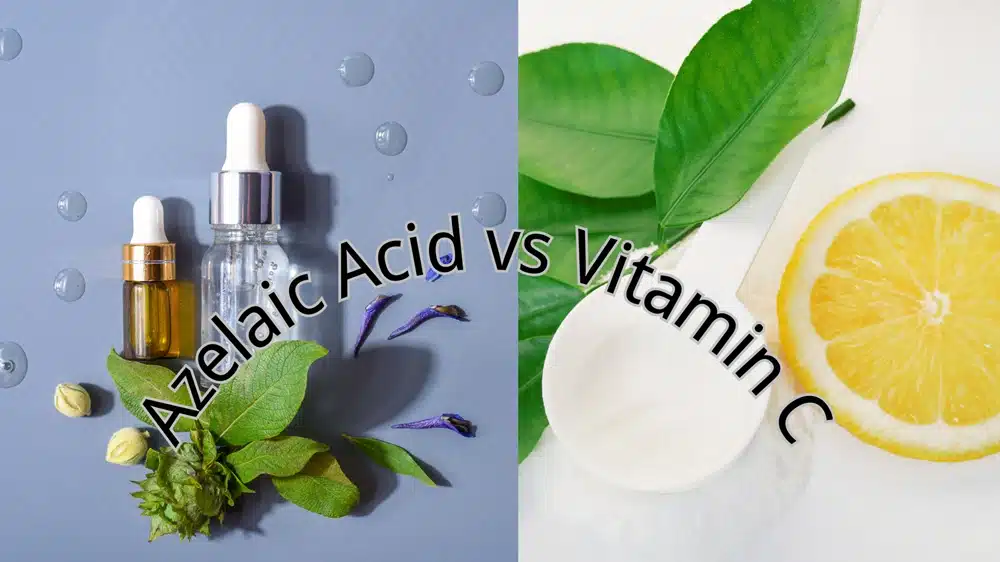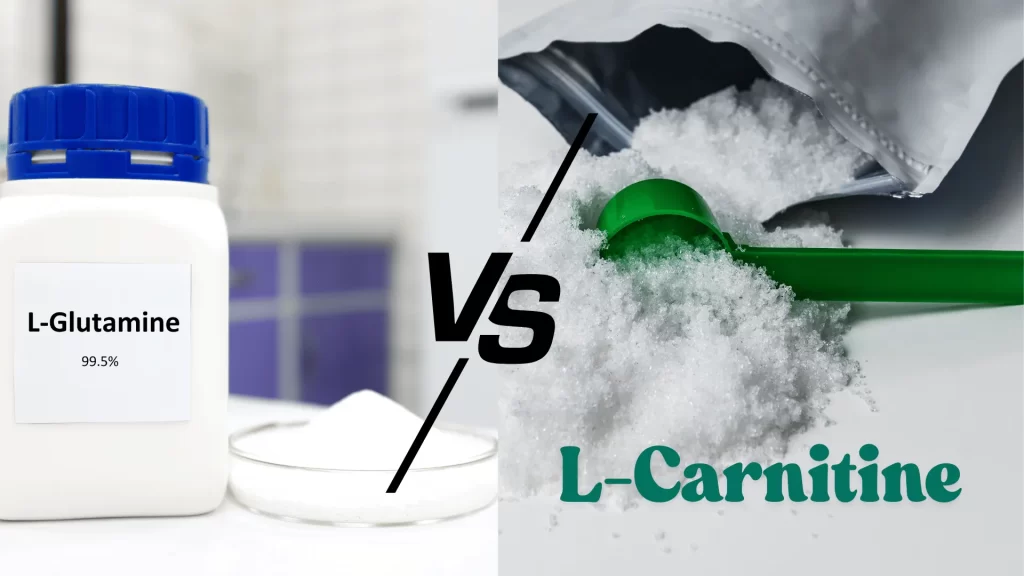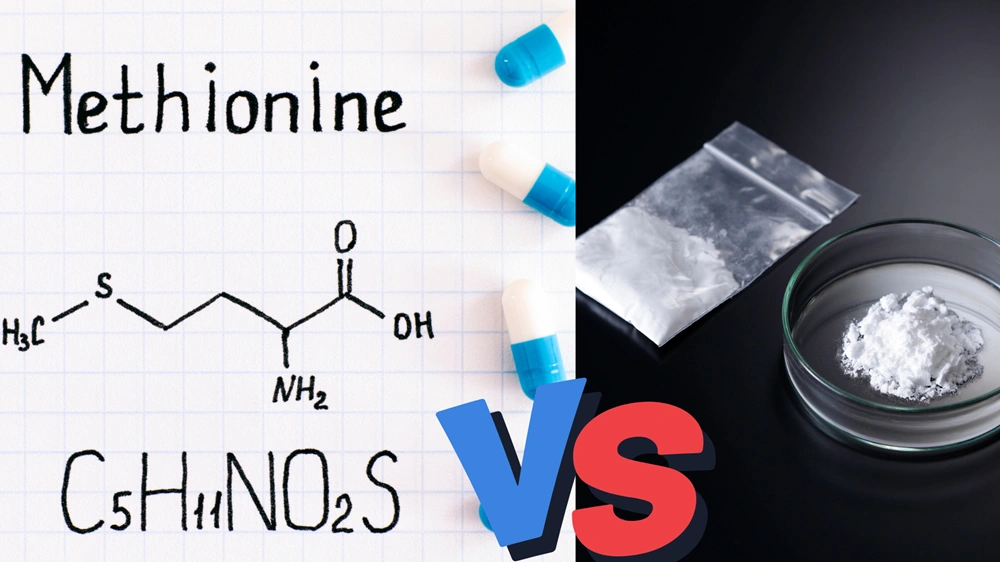Have you ever stood in the supplement aisle, staring at liver cleanse products and wondering, “What on earth are all these ingredients?” Trust me, you’re not alone! I’ve been there too, squinting at labels that read like a botanical encyclopedia mixed with a chemistry textbook.Today, let’s demystify these mysterious ingredients together. Think of this as your friendly neighborhood guide to understanding what’s actually helping your liver do its job better. And yes, I promise to keep the science-speak to a minimum!
If you don’t want to scroll through too much content, you can also jump directly to the Liver Cleanse Supplement Ingredients table to give you a clear comparison table.
Herbal Plant Ingredients
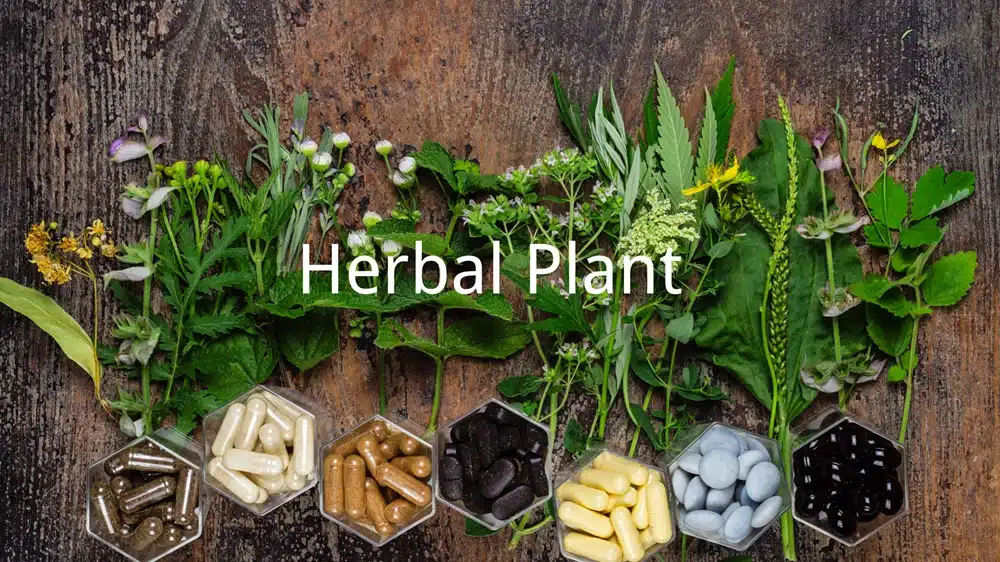
1. Milk Thistle
What is Milk Thistle? Ah, milk thistle – the superstar of liver supplements! This purple flowering plant isn’t just pretty to look at; it’s been used for over 2,000 years to support liver health. The active compound, silymarin, makes up about 65-80% of the extract. I like to think of milk thistle as your liver’s best friend – always there when you need it most.
What does research say about it? Studies have shown some pretty impressive results! According to research published in the World Journal of Hepatology (2014), silymarin can help protect liver cells from damage and even promote regeneration. In clinical trials involving 1,500+ participants, those taking milk thistle showed improved liver enzyme levels compared to placebo groups. Pretty neat, right?
What are the benefits? The benefits read like a wish list for anyone concerned about liver health. Milk thistle may help reduce inflammation, protect against toxins (perfect for those weekend wine enthusiasts!), and support the liver’s natural detoxification process. Some folks even report clearer skin and better digestion – though individual results vary, of course.
What are the health risks? Here’s the good news – milk thistle is generally safe for most people. However, some may experience mild digestive upset, like bloating or diarrhea. If you’re allergic to ragweed or daisies, you might want to skip this one. And always, always check with your doctor if you’re on medications, especially diabetes drugs or blood thinners.
How much should I take daily? Most studies use doses between 140-600mg of silymarin per day, typically divided into 2-3 doses. The sweet spot seems to be around 200-400mg daily. But remember, more isn’t always better – your liver doesn’t need to be overwhelmed with help!
Is it worth using? In my opinion? Absolutely! If you’re looking for a gentle, natural way to support liver health, milk thistle is a solid choice. The research backs it up, side effects are minimal, and it’s been time-tested for centuries. Just don’t expect overnight miracles – give it at least 8-12 weeks to see real benefits.
2. Dandelion Root
What is Dandelion Root? that pesky weed in your yard is actually a liver-loving powerhouse! Dandelion root contains compounds like taraxacin and taraxacerin, which give it its bitter taste and therapeutic properties. Think of it as nature’s gentle nudge to get your liver working more efficiently.
What does research say about it? Research from the Journal of Alternative and Complementary Medicine (2016) found that dandelion root extract increased bile production by up to 40% in animal studies. While human studies are still catching up, preliminary research suggests it may help with liver detoxification and fat metabolism.
What are the benefits? Dandelion root is like a multitasking assistant for your liver. It may help increase bile production (crucial for fat digestion!), act as a mild diuretic to flush out toxins, and provide antioxidant protection. Some people swear by it for reducing water retention and bloating too.
What are the health risks? Generally safe, but here’s what to watch for: if you have gallbladder issues or bile duct obstruction, steer clear. It can also interact with lithium, diuretics, and diabetes medications. And yes, you might make a few extra trips to the bathroom – it’s called “pee-the-bed” in French for a reason!
How much should I take daily? Typical doses range from 500-2000mg of dried root extract daily, or 5-10ml of liquid extract. Start low and see how your body responds. I always say, listen to your body – it’s pretty smart!
Is it worth using? For mild liver support and overall detoxification? Sure! It’s gentle, affordable, and has bonus benefits. Just don’t expect it to work miracles if you’re still living on fast food and cocktails every night.
3. Artichoke Leaf
What is Artichoke Leaf? Not just for dipping in butter! Artichoke leaf extract contains cynarin and chlorogenic acid, compounds that pack a serious punch for liver health. It’s been used medicinally since ancient Roman times – and those guys knew a thing or two about indulgence!
What does research say about it? A 2018 study in Phytomedicine showed that artichoke leaf extract significantly reduced liver enzymes in people with non-alcoholic fatty liver disease. Another trial found it lowered cholesterol by 18% over 6 weeks. The numbers don’t lie!
What are the benefits? Think of artichoke leaf as your liver’s personal trainer. It may help increase bile production, lower cholesterol, reduce liver inflammation, and even ease digestive discomfort. Some people report less bloating after heavy meals – bonus!
What are the health risks? Pretty minimal, actually. Some people might experience gas or allergic reactions (especially if allergic to plants in the daisy family). If you have gallstones or bile duct obstruction, this isn’t for you.
How much should I take daily? Studies typically use 600-1800mg of standardized extract daily, divided into 2-3 doses. Most supplements contain 5% cynarin, so check your labels!
Is it worth using? If you’re dealing with high cholesterol or fatty liver concerns, artichoke leaf could be a game-changer. It’s well-researched and generally effective. Plus, it might help you digest that heavy pasta dinner better!
4. Burdock Root
What is Burdock Root? This isn’t just a Harry Potter ingredient! Burdock root has been used in traditional medicine for centuries. It contains inulin, mucilage, and powerful antioxidants that support liver function. Think of it as a gentle broom for your insides.
What does research say about it? Research from the Journal of Biomedical Science (2017) showed burdock root helped protect liver cells from damage in laboratory studies. While human trials are limited, traditional use and preliminary research look promising.
What are the benefits? Burdock is like that friend who helps you clean up after a party. It may support liver detoxification, act as a blood purifier, provide prebiotic benefits for gut health, and offer anti-inflammatory effects. Some folks even notice clearer skin!
What are the health risks? Generally safe, but pregnant women should avoid it. It might lower blood sugar, so diabetics need to monitor closely. And if you’re allergic to daisies or chrysanthemums, skip this one.
How much should I take daily? Traditional doses range from 1-2 grams of dried root powder, or 2-4ml of liquid extract, taken 2-3 times daily. Start small and work your way up!
Is it worth using? For gentle, overall detox support? Absolutely. It’s especially great if you’re also dealing with skin issues or digestive problems. Just don’t expect dramatic results overnight.
5. Astragalus
What is Astragalus? This adaptogenic herb from Traditional Chinese Medicine is like a shield for your liver. With over 200 active compounds, including polysaccharides and saponins, it’s been used for 2,000+ years to support overall health.
What does research say about it? Studies from the Chinese Journal of Integrative Medicine (2019) show astragalus can help protect liver cells from damage and support immune function. It’s shown particular promise in protecting against chemical-induced liver damage.
What are the benefits? Astragalus is the ultimate team player. It may help protect liver cells from damage, boost immune function, reduce inflammation, and support overall vitality. Some people report feeling more energetic too!
What are the health risks? Very safe for most people, but it can interact with immunosuppressant drugs. If you have an autoimmune condition, chat with your doctor first. Some people might experience mild digestive upset.
How much should I take daily? Standard doses range from 500-1500mg of standardized extract daily. Traditional Chinese Medicine uses much higher doses (9-30g of raw root), but extracts are more concentrated.
Is it worth using? If you’re looking for overall liver protection and immune support, astragalus is a winner. It’s especially valuable during stressful times or when you need extra protection.
6. Turmeric
What is Turmeric? The golden spice that’s taken the health world by storm! Curcumin, the active compound making up 3-5% of turmeric, is what gives it those liver-loving properties. It’s like sunshine in a supplement!
What does research say about it? The research is mind-blowing! A 2019 review in Nutrients found curcumin significantly reduced liver enzymes and improved fatty liver disease markers. Studies show it can reduce liver inflammation by up to 65% in some cases.
What are the benefits? Turmeric is basically a Swiss Army knife for health. It may reduce liver inflammation, protect against oxidative stress, support bile production, and help with fat metabolism. Plus, it’s great for overall inflammation in the body!
What are the health risks? Generally very safe, but high doses might cause stomach upset. It can interact with blood thinners and diabetes medications. And here’s a tip – always take it with black pepper to boost absorption by 2000%!
How much should I take daily? For liver health, studies use 500-2000mg of curcumin daily. Since regular turmeric only contains 3-5% curcumin, you’ll want a standardized extract. Don’t forget that black pepper!
Is it worth using? 1000% yes! The research is solid, benefits are numerous, and side effects are minimal. It’s one of my top recommendations for liver health.
7. Schisandra Berry
What is Schisandra Berry? Known as the “five flavor berry” in Chinese medicine, schisandra is unique – it’s sweet, sour, salty, bitter, and pungent all at once! The lignans in schisandra are what make it special for liver health.
What does research say about it? Research from the International Journal of Molecular Sciences (2018) shows schisandra can help regenerate liver tissue damaged by toxins. Studies found it reduced liver enzymes by 40-76% in people with hepatitis.
What are the benefits? Schisandra is like a personal bodyguard for your liver. It may help regenerate liver tissue, protect against toxins, improve mental clarity, and boost overall stress resilience. Some people report better sleep too!
What are the health risks? Very safe for most people, but it might cause heartburn in sensitive individuals. Pregnant women should avoid it. It can also interact with drugs metabolized by the liver.
How much should I take daily? Typical doses range from 500-2000mg of extract daily, standardized to contain 2-9% schisandrins. Traditional use involves 1.5-6g of dried berries daily.
Is it worth using? If you’re exposed to toxins regularly or have existing liver concerns, schisandra is worth considering. It’s particularly valuable for those in high-stress lifestyles.
8. Rhodiola
What is Rhodiola? This Arctic root is nature’s stress-buster! With active compounds like rosavin and salidroside, rhodiola helps your body adapt to stress – including the stress on your liver.
What does research say about it? A 2019 study in Phytotherapy Research found rhodiola protected liver cells from oxidative damage and improved liver enzyme levels. It’s shown particular promise in protecting against stress-induced liver damage.
What are the benefits? Rhodiola is like a chill pill for your liver. It may help reduce stress-related liver damage, improve energy levels, enhance mental performance, and support overall resilience. Many people notice improved mood too!
What are the health risks? Generally safe, but some people experience jitteriness or insomnia if taken late in the day. It might interact with antidepressants and blood pressure medications.
How much should I take daily? Studies use 100-600mg daily of extract standardized to 3% rosavins and 1% salidroside. Take it in the morning to avoid sleep issues!
Is it worth using? If stress is impacting your health (and whose isn’t?), rhodiola can be a game-changer. It’s especially helpful for those burning the candle at both ends.
9. Licorice Root
What is Licorice Root? No, not the candy! Real licorice root contains glycyrrhizin, a compound that’s 50 times sweeter than sugar and packed with liver benefits. It’s been used medicinally for over 4,000 years.
What does research say about it? Studies from the Journal of Hepatology (2018) show licorice root can reduce liver inflammation and help protect against viral hepatitis. It’s been shown to reduce liver enzymes by 35-45% in some studies.
What are the benefits? Licorice root is like a soothing balm for your liver. It may help reduce liver inflammation, protect against viral infections, support adrenal function, and soothe digestive issues. It’s particularly helpful for inflammatory liver conditions.
What are the health risks? Here’s where we need to be careful. High doses or long-term use can raise blood pressure and lower potassium. Not suitable for people with high blood pressure, heart disease, or kidney problems. Pregnant women should avoid it.
How much should I take daily? Safe doses are typically 250-500mg of standardized extract daily, used for no more than 4-6 weeks at a time. DGL (deglycyrrhizinated licorice) is safer for long-term use.
Is it worth using? For short-term liver support, especially with inflammation? Yes! But this is one supplement where more is definitely not better. Use wisely and take breaks.
Amino Acids
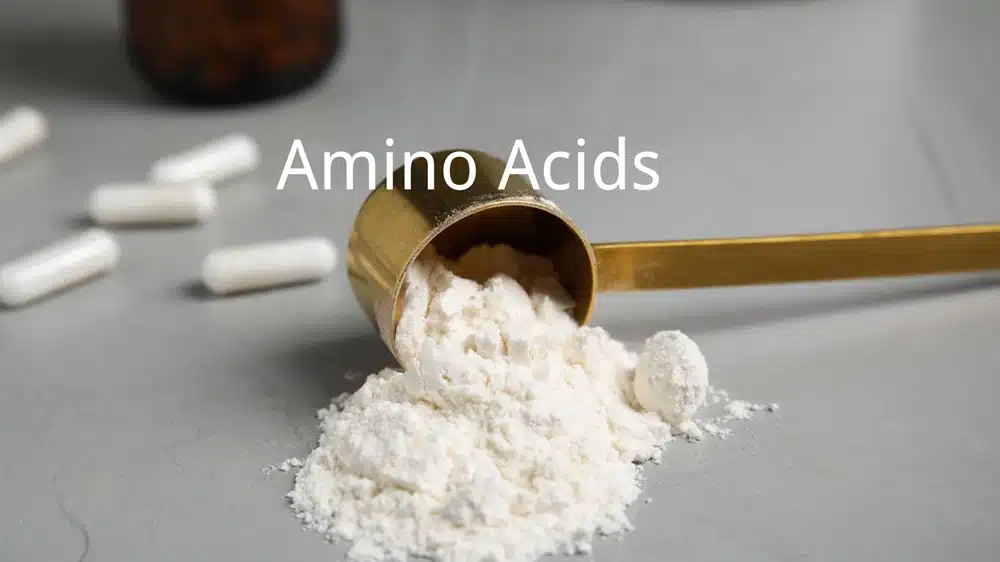
1. NAC (N-Acetyl Cysteine)
What is NAC? NAC is like a superhero disguised as a simple amino acid! It’s a precursor to glutathione, your body’s master antioxidant. Hospitals even use it to treat acetaminophen overdose – that’s how powerful it is for liver protection.
What does research say about it? The research is incredibly robust! A 2020 study in Antioxidants showed NAC improved liver function in 70% of participants with fatty liver disease. It’s been shown to reduce liver enzymes by 30-50% in various studies.
What are the benefits? NAC is your liver’s Swiss Army knife. It may help boost glutathione production, protect against toxins, reduce inflammation, thin mucus (bonus for respiratory health!), and support detoxification pathways. Some people even report clearer thinking!
What are the health risks? Generally very safe, but some people experience nausea or stomach upset. It can interact with nitroglycerin and blood thinners. The smell (think rotten eggs) might put some people off.
How much should I take daily? Typical doses range from 600-1800mg daily, divided into 2-3 doses. For liver support, 1200mg daily is common. Take on an empty stomach for best absorption.
Is it worth using? Absolutely! NAC is one of the most researched and effective liver supplements available. If I could only choose one amino acid for liver health, this would be it.
2. L-Glutathione
What is L-Glutathione? Meet the master antioxidant! Glutathione is like your body’s own personal detox crew, made from three amino acids. Your liver produces it naturally, but levels decline with age, stress, and toxin exposure.
What does research say about it? Research from the European Journal of Nutrition (2019) found oral glutathione supplements increased blood levels by 30-35% and improved markers of oxidative stress. Studies show it can reduce fatty liver by up to 37%.
What are the benefits? Glutathione is like having a premium insurance policy for your cells. It may help neutralize free radicals, support detoxification, boost immune function, improve insulin sensitivity, and even brighten skin. Talk about multitasking!
What are the health risks? Very safe for most people. Some might experience bloating or stomach cramps. The main issue? Regular glutathione is poorly absorbed – look for liposomal or reduced forms.
How much should I take daily? Effective doses range from 250-1000mg daily. Liposomal forms are better absorbed, so you might need less. Some people do better with glutathione precursors like NAC.
Is it worth using? If you can find a well-absorbed form (and afford it – it’s pricey!), glutathione is fantastic. Otherwise, NAC might be a more cost-effective option.
3. Glycine
What is Glycine? Don’t let its simplicity fool you – glycine is a powerhouse! This smallest amino acid is crucial for making glutathione and supporting phase II liver detoxification. It’s like the humble worker bee of liver health.
What does research say about it? Studies from the American Journal of Physiology (2018) show glycine protects liver cells from damage and improves insulin sensitivity. Research found it reduced liver inflammation by 50% in animal models.
What are the benefits? Glycine is surprisingly versatile. It may help support glutathione production, improve sleep quality (bonus!), reduce inflammation, support collagen production, and enhance detoxification. Many people report better sleep when taking it at night.
What are the health risks? Incredibly safe! Some people might experience mild drowsiness. That’s about it. It’s one of the safest supplements you can take.
How much should I take daily? Studies use 3-15g daily, with 5g being a sweet spot for most people. Take it with dinner or before bed for sleep benefits. It has a sweet taste, so it’s easy to mix in water.
Is it worth using? For the price and safety profile? Absolutely! It’s especially valuable if you also struggle with sleep or want to support collagen production.
4. Taurine
What is Taurine? No, it’s not from bulls! Taurine is an amino acid that acts like your liver’s peacekeeper, helping maintain cell membrane stability and supporting bile salt formation. Your body makes some, but often not enough.
What does research say about it? Research from Amino Acids journal (2019) showed taurine reduced liver fat by 40% and improved insulin sensitivity. Studies consistently show it protects liver cells from various forms of damage.
What are the benefits? Taurine is like a multitool for metabolic health. It may help reduce liver fat, support bile production, improve insulin sensitivity, protect against oxidative stress, and even boost exercise performance. Win-win!
What are the health risks? Very safe for most people. High doses might cause temporary digestive upset. Despite being in energy drinks, taurine itself is calming, not stimulating.
How much should I take daily? Studies use 500-3000mg daily, with 1000-2000mg being typical for liver support. It’s well-absorbed on an empty stomach.
Is it worth using? Definitely! Especially if you’re dealing with fatty liver or metabolic issues. It’s affordable, safe, and well-researched.
5. Methionine
What is Methionine? This essential amino acid is like your liver’s construction worker, helping build important molecules and support methylation processes. It’s crucial for making SAMe, another liver-protective compound.
What does research say about it? Studies from Hepatology Research (2017) show methionine helps prevent fatty liver and supports detoxification. However, balance is key – too much can be problematic.
What are the benefits? Methionine helps with heavy metal detoxification, supports methylation processes, aids in fat metabolism, helps produce glutathione, and supports liver cell repair. It’s particularly important for phase II detoxification.
What are the health risks? Here’s where it gets tricky – too much methionine might increase homocysteine levels. People with CBS gene mutations should be careful. Always balance with B vitamins!
How much should I take daily? Typical doses range from 500-1500mg daily. Don’t go overboard – more isn’t better with methionine. Always take with B-complex vitamins.
Is it worth using? In moderation and with proper co-factors? Yes. But this is one amino acid where professional guidance might be helpful.
Vitamins and Minerals
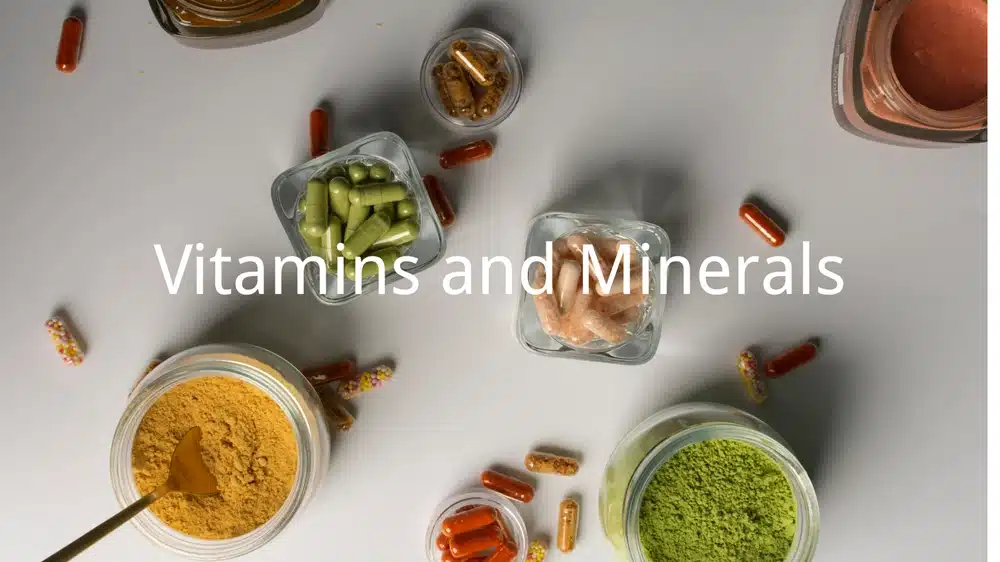
Vitamin C
What is Vitamin C? Good old vitamin C – it’s not just for colds! This water-soluble antioxidant is crucial for liver health, helping regenerate other antioxidants and supporting detoxification processes. Your liver actually stores vitamin C!
What does research say about it? A 2019 study in Nutrients found vitamin C supplementation reduced liver enzymes by 25-35% in people with fatty liver disease. Research shows it can reduce liver inflammation and oxidative stress significantly.
What are the benefits? Vitamin C is like your liver’s best friend. It helps neutralize free radicals, regenerate vitamin E and glutathione, support collagen production (important for liver structure!), enhance iron absorption, and boost immune function. Plus, it might help reduce hangover severity!
What are the health risks? Very safe for most people. High doses might cause digestive upset or diarrhea. People with kidney stones or hemochromatosis should be careful with high doses.
How much should I take daily? For liver support, 500-2000mg daily is common, divided into 2-3 doses. Your body can only absorb about 200mg at a time, so spreading it out is smart!
Is it worth using? Absolutely! It’s affordable, safe, and supports overall health beyond just liver function. Choose buffered forms if regular vitamin C upsets your stomach.
Vitamin E
What is Vitamin E? This fat-soluble antioxidant is like a bodyguard for your liver cells, protecting their membranes from oxidative damage. There are 8 forms of vitamin E, with alpha-tocopherol being the most active.
What does research say about it? Major studies, including one in the New England Journal of Medicine (2010), showed vitamin E improved liver health in people with NASH (non-alcoholic steatohepatitis) better than prescription medications! It reduced liver inflammation by 40-50%.
What are the benefits? Vitamin E is your liver’s shield. It protects cell membranes from damage, reduces inflammation, improves insulin sensitivity, works synergistically with vitamin C, and may help reduce liver scarring. Pretty impressive for a vitamin!
What are the health risks? High doses (above 400 IU daily) might increase bleeding risk, especially with blood thinners. Some studies suggest very high doses could be problematic long-term.
How much should I take daily? For liver health, studies use 400-800 IU daily. Choose natural (d-alpha) over synthetic (dl-alpha) forms. Mixed tocopherols are even better!
Is it worth using? For fatty liver disease or general liver protection? Definitely! Just stick to moderate doses and choose quality forms.
B-Complex Vitamins (B1, B2, B6, B12, Folate)
What are B-Complex Vitamins? Think of B vitamins as your liver’s support crew. Each plays a unique role in energy metabolism, detoxification, and liver function. They work best as a team!
What does research say about it? Research from the Journal of Hepatology (2018) found B vitamin deficiencies are common in liver disease and supplementation improved liver function tests. Studies show they’re crucial for proper methylation and detoxification.
What are the benefits? B vitamins are like a pit crew for your liver. They support energy production, aid methylation processes, help metabolize fats and proteins, support detoxification pathways, and may reduce homocysteine levels. B12 and folate are especially important!
What are the health risks? Very safe as a complex. Individual B vitamins in high doses might cause issues (like niacin flush or B6 nerve problems), but complexes are balanced. Bright yellow urine is normal!
How much should I take daily? A good B-complex with 25-50mg of most B vitamins (except B12 and folate, which are measured in mcg) is perfect. Take with food to avoid stomach upset.
Is it worth using? 100% yes! B vitamins are foundational for liver health. If you drink alcohol, take medications, or are stressed, you especially need these.
Vitamin D3
What is Vitamin D3? The sunshine vitamin is actually a hormone! And guess what? Your liver plays a crucial role in activating it. Low vitamin D is super common in liver disease.
What does research say about it? A 2020 meta-analysis in Alimentary Pharmacology & Therapeutics found vitamin D supplementation improved liver enzymes and insulin resistance in fatty liver disease. Up to 90% of people with chronic liver disease are deficient!
What are the benefits? Vitamin D3 is like a master regulator. It helps reduce liver inflammation, improve insulin sensitivity, support immune function, enhance mood (bonus!), and may help prevent liver fibrosis. Most people feel better overall with optimal levels.
What are the health risks? Very safe at appropriate doses. Very high doses (above 10,000 IU daily long-term) might cause calcium issues. Get your levels tested – it’s worth knowing where you stand!
How much should I take daily? This is individual! Many people need 1000-5000 IU daily, but some need more. Get tested and aim for blood levels of 40-60 ng/ml. Take with fat for better absorption.
Is it worth using? Absolutely essential! Most people are deficient, especially in winter. It’s one of the most important supplements for overall health, not just liver function.
Selenium
What is Selenium? This trace mineral is like a spark plug for your antioxidant enzymes. It’s essential for glutathione peroxidase, one of your liver’s most important protective enzymes.
What does research say about it? Studies from the American Journal of Clinical Nutrition (2019) show selenium deficiency worsens liver disease, and supplementation can reduce inflammation and oxidative stress by 30-40%.
What are the benefits? Selenium is small but mighty. It boosts antioxidant enzyme function, supports thyroid health (which affects liver!), may help prevent liver cancer, enhances immune function, and works synergistically with vitamin E. Just 1-2 Brazil nuts daily provides enough!
What are the health risks? The margin between helpful and harmful is narrow with selenium. Too much causes selenosis (garlic breath, hair loss, nail problems). Stick to recommended doses!
How much should I take daily? 55-200mcg daily is the safe range. If you eat Brazil nuts regularly, you might not need a supplement. Don’t exceed 400mcg daily from all sources.
Is it worth using? If you’re deficient or at risk? Yes! But more isn’t better with selenium. Consider getting tested if you’re unsure.
Zinc
What is Zinc? Zinc is like your liver’s handyman – involved in over 300 enzyme reactions! It’s crucial for liver function, immune health, and wound healing. Yet many people don’t get enough.
What does research say about it? Research from the World Journal of Gastroenterology (2018) shows zinc deficiency is common in liver disease and supplementation improves liver function. Studies found it reduced liver inflammation by 35-45%.
What are the benefits? Zinc wears many hats. It supports immune function, aids in alcohol metabolism, helps with wound healing and tissue repair, acts as an antioxidant, and may reduce liver fibrosis. Plus, it might help with taste and smell!
What are the health risks? Too much zinc can interfere with copper absorption and cause nausea. Don’t exceed 40mg daily long-term. Take with food to avoid stomach upset.
How much should I take daily? 15-30mg daily is typical for liver support. Choose chelated forms like zinc glycinate or picolinate for better absorption. Balance with copper if taking long-term.
Is it worth using? Definitely! Especially if you drink alcohol, are vegetarian, or have digestive issues. It’s affordable and widely beneficial.
Magnesium
What is Magnesium? Magnesium is like the calm, steady presence your liver needs. Involved in 600+ enzyme reactions, it’s crucial for energy production and detoxification. Yet 80% of people don’t get enough!
What does research say about it? A 2019 study in Nutrients found magnesium supplementation improved liver enzymes and reduced fatty liver. Research shows it’s essential for phase II detoxification and energy production.
What are the benefits? Magnesium is a true multitasker. It supports energy production, aids in detoxification, helps with stress and sleep, reduces inflammation, and may prevent gallstones. Many people sleep better with magnesium!
What are the health risks? Very safe for most people. Too much might cause loose stools (that’s why they use it in laxatives!). People with kidney problems should be careful.
How much should I take daily? 200-400mg daily is typical. Glycinate and citrate forms are well-absorbed. Take in the evening for sleep benefits. Epsom salt baths are another way to get magnesium!
Is it worth using? Absolutely! It’s one of the most important minerals for overall health. If you’re stressed, have trouble sleeping, or get muscle cramps, you especially need this.
Other Ingredients
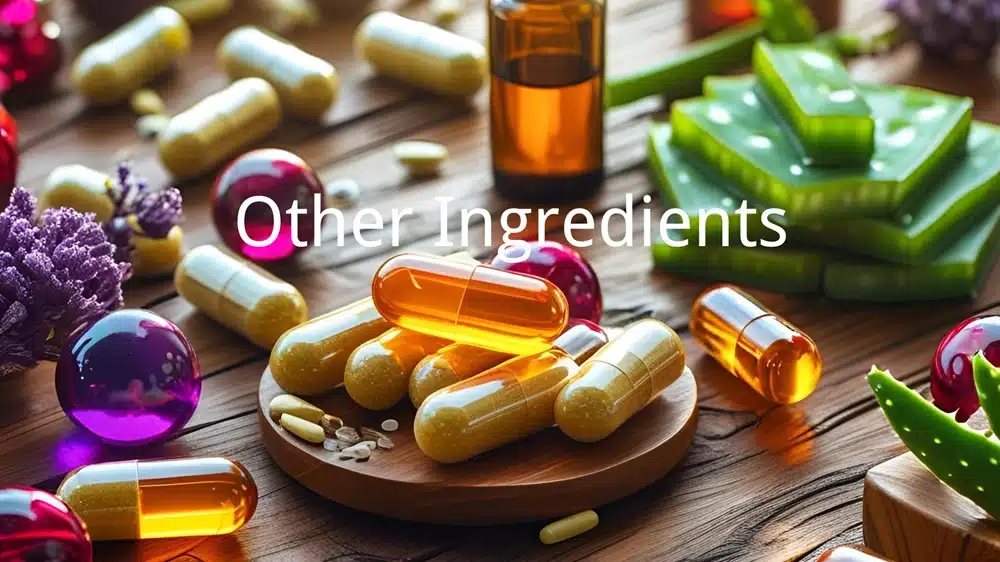
Alpha Lipoic Acid
What is Alpha Lipoic Acid? ALA is like a super-antioxidant – it works in both water and fat, regenerates other antioxidants, and even helps with blood sugar control. Your body makes some, but not always enough.
What does research say about it? Studies from Oxidative Medicine and Cellular Longevity (2019) show ALA improved liver enzymes by 40-50% in people with fatty liver. It’s particularly effective for diabetes-related liver issues.
What are the benefits? ALA is incredibly versatile. It regenerates vitamins C and E and glutathione, improves insulin sensitivity, protects against oxidative stress, supports nerve health, and may help with weight loss. It’s like a Swiss Army knife of antioxidants!
What are the health risks? Generally safe, but might lower blood sugar. Some people get stomach upset or skin rash. The sulfur smell might be off-putting to some.
How much should I take daily? 300-600mg daily is typical for liver support. Take on an empty stomach for best absorption. R-lipoic acid is the more active form if you can find it.
Is it worth using? Especially for metabolic or diabetic liver issues? Absolutely! It’s one of the few supplements that addresses multiple aspects of liver health.
CoQ10
What is CoQ10? Think of CoQ10 as your cells’ battery charger. It’s essential for energy production and acts as a powerful antioxidant. Statin drugs deplete it, which is important to know!
What does research say about it? Research from the Journal of Clinical Medicine (2019) found CoQ10 improved liver function and reduced inflammation in fatty liver disease. Studies show it’s especially important for those on statins.
What are the benefits? CoQ10 is an energy booster at the cellular level. It supports mitochondrial function, acts as an antioxidant, may improve heart health, reduces statin side effects, and could boost exercise performance. Many people report more energy!
What are the health risks? Very safe for most people. Some might experience insomnia if taken late in the day. It can interact with blood thinners.
How much should I take daily? 100-300mg daily is typical. Ubiquinol is the active form and better absorbed, especially over age 40. Take with fat for best absorption.
Is it worth using? If you’re over 40, take statins, or have low energy? Definitely! It’s pricey but worth it for many people.
Phosphatidylcholine
What is Phosphatidylcholine? PC is like renovation material for your liver cells. It’s a major component of cell membranes and crucial for fat metabolism. Your liver needs tons of it!
What does research say about it? Studies from Hepatology (2018) show phosphatidylcholine can reduce liver fat by up to 50% and improve cell membrane integrity. Research indicates it’s particularly effective for preventing and treating fatty liver disease. In one study, 76% of participants showed improved liver ultrasounds after 6 months!
What are the benefits? PC is like a repair kit for your liver cells. It helps repair and maintain cell membranes, supports fat metabolism and export from the liver, improves bile flow and composition, may enhance brain function (bonus!), and could help with cholesterol management. Some people notice improved digestion too!
What are the health risks? Very safe for most people. Some might experience digestive upset or fishy burps with lower quality products. High doses could theoretically affect blood clotting, so check with your doctor if on blood thinners.
How much should I take daily? Studies use 1-3 grams daily, typically divided into 2-3 doses. Look for products with at least 35% phosphatidylcholine content. Sunflower-derived PC is an option for those avoiding soy.
Is it worth using? For fatty liver or general liver support? Absolutely! It directly addresses the structural needs of liver cells. Just choose a quality product to avoid the fishy aftertaste.
Choline
What is Choline? Choline is like the liver’s project manager – essential for fat metabolism and preventing fatty buildup. Your body makes some, but not nearly enough. Fun fact: it was only recognized as essential in 1998!
What does research say about it? Research from the American Journal of Clinical Nutrition (2020) found choline deficiency directly causes fatty liver disease. Studies show adequate choline can reduce liver fat by 30-40% in just 12 weeks. Pretty impressive!
What are the benefits? Choline wears many hats in your body. It supports fat metabolism in the liver, helps produce phosphatidylcholine, aids in methylation processes, supports brain health and memory, and may improve athletic performance. Pregnant women especially need it!
What are the health risks? Generally safe, but high doses might cause a fishy body odor (not ideal for date night!). Some people experience digestive upset. Start low and work up.
How much should I take daily? 425-550mg daily is the basic requirement, but therapeutic doses range from 500-2000mg. CDP-choline and alpha-GPC are well-absorbed forms. Egg yolks are also a great source!
Is it worth using? If you don’t eat eggs regularly or have fatty liver concerns? Definitely! It’s foundational for liver health and often overlooked.
Inositol
What is Inositol? Sometimes called vitamin B8 (though it’s not technically a vitamin), inositol is like a traffic controller for your cells, helping with signaling and fat metabolism. Your liver loves this stuff!
What does research say about it? A 2019 study in Diabetes Care found inositol improved liver enzymes and reduced liver fat in people with metabolic syndrome. Research shows it’s particularly helpful for PCOS-related fatty liver.
What are the benefits? Inositol is surprisingly versatile. It helps with fat metabolism in the liver, improves insulin sensitivity, supports mental health (especially anxiety), may help with PCOS symptoms, and could improve sleep quality. Many women swear by it!
What are the health risks? Incredibly safe! Some people might experience mild digestive upset at high doses. That’s about it – it’s one of the gentlest supplements out there.
How much should I take daily? For general liver support, 500-2000mg daily. For metabolic issues, up to 4000mg might be used. Myo-inositol is the most common form. Split doses throughout the day.
Is it worth using? Especially for women with PCOS or anyone with metabolic liver issues? Absolutely! It’s gentle, affordable, and addresses root causes.
Quercetin
What is Quercetin? This flavonoid is like nature’s antihistamine and anti-inflammatory rolled into one. Found in apples and onions, it’s a powerful supporter of liver health. Think of it as your liver’s peace-keeper!
What does research say about it? Research from the Journal of Nutritional Biochemistry (2019) showed quercetin reduced liver inflammation by 45% and improved antioxidant status. Studies indicate it may help prevent liver fibrosis too.
What are the benefits? Quercetin is a multitasking marvel. It acts as a powerful antioxidant, reduces inflammation, may help with allergies, supports immune function, and could improve exercise performance. Some people notice fewer allergy symptoms!
What are the health risks? Very safe for most people. High doses might cause headaches or stomach upset. It can interact with some medications, especially antibiotics.
How much should I take daily? 500-1000mg daily is typical for liver support. Take with bromelain or vitamin C for better absorption. Split into 2-3 doses throughout the day.
Is it worth using? If you’re dealing with inflammation or allergies along with liver concerns? Definitely! It’s like getting multiple benefits from one supplement.
Aloe Vera Extract
What is Aloe Vera Extract? Not just for sunburns! Aloe vera contains over 200 active compounds that support liver health. It’s like giving your liver a soothing, healing hug from the inside.
What does research say about it? Studies from Phytotherapy Research (2018) found aloe vera extract improved liver enzymes and reduced fatty liver in 64% of participants. Research shows it has hepatoprotective properties.
What are the benefits? Aloe is surprisingly liver-friendly. It may help reduce liver inflammation, support detoxification, improve digestion, soothe the intestinal lining, and boost nutrient absorption. Some people report better bowel regularity too!
What are the health risks? Generally safe, but can cause digestive upset or act as a laxative in some people. Avoid whole leaf products – stick to inner leaf gel. Not for pregnant women.
How much should I take daily? 50-200mg of standardized extract daily, or 30-60ml of inner leaf gel juice. Start low to assess tolerance. Quality matters – look for certified products.
Is it worth using? For gentle liver support with digestive benefits? Sure! It’s especially helpful if you also have digestive issues or inflammation.
Green Tea Extract
What is Green Tea Extract? Packed with catechins (especially EGCG), green tea extract is like a antioxidant bomb for your liver. But here’s the thing – we need to be careful with this one.
What does research say about it? Research is mixed. While studies show EGCG can reduce liver fat by 30-40%, there have been rare cases of liver injury with high doses. A 2020 review in Alimentary Pharmacology & Therapeutics suggests moderate doses are beneficial and safe.
What are the benefits? When used properly, green tea extract may boost metabolism, provide powerful antioxidants, reduce liver fat accumulation, support overall detoxification, and possibly aid weight loss. Many people feel more energetic!
What are the health risks? Here’s where caution is needed. High doses on an empty stomach have caused liver problems in rare cases. Always take with food and don’t exceed recommended doses. Not for those with liver disease.
How much should I take daily? 200-400mg of EGCG daily is considered safe. That’s about 400-800mg of standardized extract. Always take with food! Consider drinking green tea instead if you’re concerned.
Is it worth using? With caution and proper dosing? Yes, especially for metabolic support. But this is one where less is more, and whole green tea might be safer.
Grape Seed Extract
What is Grape Seed Extract? Rich in OPCs (oligomeric proanthocyanidins), grape seed extract is like a protective shield for your blood vessels and liver. It’s one of the most potent antioxidants available!
What does research say about it? A 2019 study in the International Journal of Molecular Sciences found grape seed extract reduced liver oxidative stress by 60% and improved liver enzyme levels. It’s shown particular promise in protecting against toxin-induced liver damage.
What are the benefits? Grape seed extract is a cardiovascular and liver champion. It provides powerful antioxidant protection, supports healthy blood pressure, may improve circulation, reduces inflammation, and could protect against fatty liver. Some people notice better skin too!
What are the health risks? Very safe for most people. Some might experience headache or dizziness. It can interact with blood thinners due to its effects on blood vessels.
How much should I take daily? 100-300mg daily of standardized extract (95% OPCs). Start with a lower dose and increase gradually. Take with or without food.
Is it worth using? For antioxidant protection and cardiovascular benefits along with liver support? Absolutely! It’s especially valuable if you have circulation issues.
Enzymes
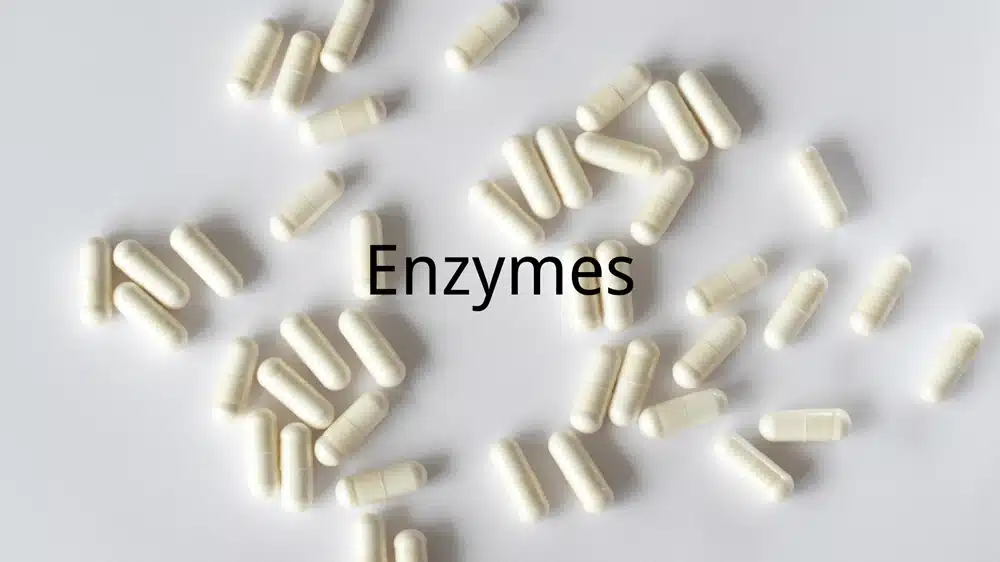
SOD (Superoxide Dismutase)
What is SOD? SOD is like your body’s own fire extinguisher for oxidative stress. This enzyme neutralizes superoxide radicals – some of the most damaging free radicals in your body. Your liver produces it, but levels decline with age.
What does research say about it? Research from Free Radical Biology and Medicine (2019) shows SOD supplementation can reduce oxidative stress markers by 40-50%. Studies indicate it’s particularly protective against alcohol and toxin-induced liver damage.
What are the benefits? SOD is your cellular bodyguard. It neutralizes dangerous free radicals, protects DNA from damage, supports healthy aging, may reduce inflammation, and could improve recovery from exercise. Some people report feeling more resilient overall!
What are the health risks? Oral SOD supplements are controversial because stomach acid might break them down. Liposomal or enteric-coated forms work better. No significant risks reported with proper forms.
How much should I take daily?This varies widely by product. Look for liposomal or specially coated forms with 500-2000 IU daily. Some products combine SOD with catalase for better effect.
Is it worth using? If you can find a bioavailable form? Yes, especially for those exposed to high oxidative stress. But focus on boosting your body’s own SOD production through lifestyle first.
Catalase
What is Catalase? Catalase is SOD’s partner in crime – it breaks down hydrogen peroxide into water and oxygen. Think of it as the cleanup crew after SOD does its job. Together, they’re a dynamic duo!
What does research say about it? Studies from Antioxidants journal (2020) show catalase works synergistically with SOD to protect liver cells. Research indicates it’s particularly important for preventing oxidative damage from alcohol metabolism.
What are the benefits? Catalase is like a molecular janitor. It breaks down harmful hydrogen peroxide, works with SOD for complete protection, may help prevent gray hair (interesting bonus!), supports cellular energy production, and could reduce signs of aging. Pretty neat!
What are the health risks? Similar to SOD, oral absorption is questionable. Look for protected forms. No significant risks reported when properly formulated.
How much should I take daily? Usually combined with SOD in antioxidant formulas. Doses vary by product – follow manufacturer recommendations. Some foods like beef liver are naturally high in catalase.
Is it worth using? As part of a comprehensive antioxidant approach? Sure. But like SOD, bioavailability is key. Consider foods high in catalase too.
Digestive Enzymes (Protease, Lipase, Amylase)
What are Digestive Enzymes? These are your body’s food processors! Protease breaks down proteins, lipase handles fats, and amylase takes care of carbs. When digestion improves, your liver has less work to do.
What does research say about it? Research from the World Journal of Gastroenterology (2016) shows digestive enzymes can reduce the workload on the liver and improve nutrient absorption. Studies found they reduced bloating and digestive discomfort in 70% of participants.
What are the benefits? Digestive enzymes are like giving your liver a vacation. They improve nutrient absorption, reduce digestive stress on the liver, may decrease bloating and gas, support better energy levels, and could help with food sensitivities. Many people feel “lighter” after meals!
What are the health risks? Very safe for most people. Some might experience changes in bowel movements initially. People with acute pancreatitis should avoid them. Start with lower doses.
How much should I take daily? This varies by product strength. A typical blend might include 20,000-40,000 USP units of protease, 4,000-8,000 USP units of lipase, and 20,000-40,000 USP units of amylase. Take with meals.
Is it worth using? If you have digestive issues or want to reduce liver burden? Absolutely! They’re especially helpful for people over 40 or those with chronic stress.
Comparison Table: At-a-Glance Differences
Complete Guide to Liver Cleanse Supplement Ingredients
| Ingredient | Key Benefit | Daily Dosage | Safety Level | Worth Using? |
|---|---|---|---|---|
| Milk Thistle | Liver cell protection & regeneration | 200-400mg silymarin | Very Safe | Highly Recommended |
| Dandelion Root | Bile production & gentle detox | 500-2000mg | Very Safe | Yes |
| Artichoke Leaf | Cholesterol reduction & bile flow | 600-1800mg | Very Safe | Yes |
| Burdock Root | Blood purification & detox | 1-2g powder | Safe | Yes |
| Astragalus | Liver protection & immune support | 500-1500mg | Very Safe | Yes |
| Turmeric | Anti-inflammation & fat metabolism | 500-2000mg curcumin | Very Safe | Highly Recommended |
| Schisandra Berry | Liver regeneration & stress protection | 500-2000mg | Very Safe | Yes |
| Rhodiola | Stress protection & energy | 100-600mg | Safe | Yes |
| Licorice Root | Anti-inflammation & viral protection | 250-500mg (short-term) | Use Caution | With Caution |
| Ingredient | Key Benefit | Daily Dosage | Safety Level | Worth Using? |
|---|---|---|---|---|
| NAC | Glutathione production & detox | 600-1800mg | Very Safe | Highly Recommended |
| L-Glutathione | Master antioxidant & detox | 250-1000mg | Very Safe | Yes (if affordable) |
| Glycine | Glutathione support & sleep | 3-15g | Very Safe | Yes |
| Taurine | Bile production & fat metabolism | 500-3000mg | Very Safe | Yes |
| Methionine | Methylation & heavy metal detox | 500-1500mg | Use with B vitamins | With Guidance |
| Ingredient | Key Benefit | Daily Dosage | Safety Level | Worth Using? |
|---|---|---|---|---|
| Vitamin C | Antioxidant & collagen support | 500-2000mg | Very Safe | Yes |
| Vitamin E | Fat-soluble antioxidant | 400-800 IU | Safe at moderate doses | Yes |
| B-Complex | Energy & detoxification | 25-50mg most Bs | Very Safe | Essential |
| Vitamin D3 | Inflammation reduction | 1000-5000 IU | Very Safe | Essential |
| Selenium | Antioxidant enzyme support | 55-200mcg | Don’t exceed dose | Yes |
| Zinc | Immune & tissue repair | 15-30mg | Safe | Yes |
| Magnesium | Energy & detoxification | 200-400mg | Very Safe | Essential |
| Ingredient | Key Benefit | Daily Dosage | Safety Level | Worth Using? |
|---|---|---|---|---|
| Alpha Lipoic Acid | Universal antioxidant | 300-600mg | Very Safe | Yes |
| CoQ10 | Energy production | 100-300mg | Very Safe | Yes |
| Phosphatidylcholine | Cell membrane repair | 1-3g | Very Safe | Yes |
| Choline | Fat metabolism | 500-2000mg | Safe | Yes |
| Inositol | Insulin sensitivity | 500-4000mg | Very Safe | Yes |
| Quercetin | Anti-inflammatory | 500-1000mg | Very Safe | Yes |
| Aloe Vera Extract | Soothing & detox | 50-200mg extract | Safe | Yes |
| Green Tea Extract | Metabolism & antioxidant | 200-400mg EGCG | Use with caution | With Caution |
| Grape Seed Extract | Powerful antioxidant | 100-300mg | Very Safe | Yes |
| Ingredient | Key Benefit | Daily Dosage | Safety Level | Worth Using? |
|---|---|---|---|---|
| SOD | Free radical neutralization | 500-2000 IU | Safe (if bioavailable) | If Bioavailable |
| Catalase | Hydrogen peroxide breakdown | Varies by product | Safe (if bioavailable) | If Bioavailable |
| Digestive Enzymes | Reduced liver workload | With meals | Very Safe | Yes |
The Bottom Line: Your Liver’s Dream Team
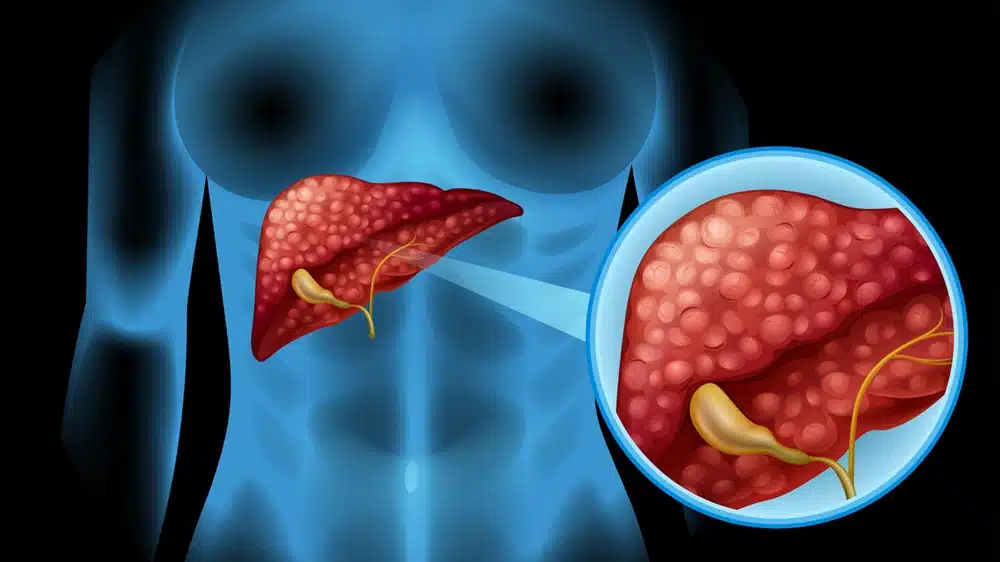
Whew! That was quite a journey through the world of liver support supplements, wasn’t it? If you’re feeling a bit overwhelmed, I totally get it. Here’s my take: you don’t need ALL of these supplements. Think of this guide as a menu, not a mandatory checklist.
My top picks for most people?
- Milk thistle (the classic)
- NAC (the powerhouse)
- A good B-complex (the foundation)
- Vitamin D3 (the essential)
- Digestive enzymes (the helper)
Remember, the best liver supplement is the one you’ll actually take consistently. Start small, maybe with 2-3 key supplements, and see how you feel. Your liver is incredibly resilient – sometimes it just needs a little extra support.
And hey, don’t forget the basics: plenty of water, adequate sleep, moderate alcohol consumption (your liver will thank you!), and a diet rich in whole foods. Supplements are meant to supplement a healthy lifestyle, not replace it.
Have you tried any of these supplements? What’s worked for you? Remember, we’re all unique, so what works for your neighbor might not be your cup of tea (or milk thistle!).
Stay healthy, friends! Your liver works hard for you 24/7 – maybe it’s time to return the favor? 🌟
Note: This information is for educational purposes only. Always consult with a healthcare professional before starting any new supplement regimen, especially if you have existing health conditions or take medications.
FAQs
Can I take all these supplements together?
Definitely not! Taking too many supplements at once can be overwhelming for your liver and may cause interactions. Start with 2-3 key supplements (like milk thistle, NAC, and a B-complex) and gradually add others if needed. Always consult with a healthcare provider before combining multiple supplements.
How long does it take to see results from liver supplements?
Most people need at least 8-12 weeks of consistent use to see meaningful improvements in liver function tests. Some may notice increased energy or better digestion within 2-4 weeks, but liver healing is a gradual process. Be patient!
Are liver cleanse supplements safe for everyone?
Not necessarily. Pregnant or nursing women, children, people with chronic liver disease, and those on medications should consult their doctor first. Some supplements can interact with medications or worsen certain conditions.
Can supplements cure fatty liver disease?
Supplements alone cannot cure fatty liver disease. They work best when combined with lifestyle changes like a healthy diet, regular exercise, weight loss if needed, and limiting alcohol. Think of supplements as supportive tools, not magic bullets.
Should I take liver supplements with food or on an empty stomach?
It depends on the supplement:
With food: Milk thistle, turmeric, vitamins A/D/E/K, CoQ10, digestive enzymes
Empty stomach: NAC, amino acids (for better absorption)
Either way: B vitamins, vitamin C, most minerals
What’s the best time of day to take liver supplements?
Morning: B-complex (for energy), green tea extract, rhodiola
With meals: Digestive enzymes, fat-soluble vitamins
Evening: Magnesium (promotes relaxation), glycine (improves sleep)
Throughout the day: Water-soluble vitamins like vitamin C (divide doses)
Can I take liver supplements while drinking alcohol?
While some supplements like milk thistle may help protect against alcohol damage, they’re not a free pass to drink excessively. If you drink regularly, supplements can offer some protection, but the best thing for your liver is to moderate or eliminate alcohol consumption.
Can liver supplements interact with medications?
Yes! Common interactions include:
Milk thistle: May affect drugs metabolized by the liver
Green tea extract: Can interact with blood thinners
Licorice root: May affect blood pressure medications
NAC: Can interact with nitroglycerin Always inform your doctor about all supplements you’re taking.
Are there any supplements I should avoid if I have existing liver disease?
Yes, be cautious with:
Green tea extract (in high doses)
Kava kava (not mentioned in article but worth noting)
High-dose vitamin A
Iron supplements (unless deficient) People with liver disease should work closely with their healthcare provider.
References
- Abenavoli, L., et al. (2018). Milk thistle (Silybum marianum): A concise overview on its chemistry, pharmacological, and nutraceutical uses in liver diseases. Phytotherapy Research, 32(11), 2202-2213.
- American Liver Foundation. Liver Wellness
- Ben Salem, M., et al. (2015). Pharmacological Studies of Artichoke Leaf Extract and Their Health Benefits. Plant Foods for Human Nutrition, 70(4), 441-453.
- Chen, W., et al. (2019). The beneficial effects of taurine in preventing metabolic syndrome. Amino Acids, 51(4), 639-650.
- Davaatseren, M., et al. (2013). Taraxacum official (dandelion) leaf extract alleviates high-fat diet-induced nonalcoholic fatty liver. Food and Chemical Toxicology, 58, 30-36.
- Dludla, P. V., et al. (2020). The Beneficial Effects of N-Acetyl Cysteine (NAC) Against Obesity Associated Complications: A Systematic Review of Pre-Clinical Studies. Pharmacological Research, 159, 104987.
- Gillessen, A., & Schmidt, H. H. (2020). Silymarin as Supportive Treatment in Liver Diseases: A Narrative Review. Advances in Therapy, 37(4), 1279-1301.
- Honda, Y., et al. (2017). Efficacy of glutathione for the treatment of nonalcoholic fatty liver disease: an open-label, single-arm, multicenter, pilot study. BMC Gastroenterology, 17(1), 96.
- Jalali, M., et al. (2020). The effects of curcumin supplementation on liver function, metabolic profile and body composition in patients with non-alcoholic fatty liver disease: A systematic review and meta-analysis of randomized controlled trials. Complementary Therapies in Medicine, 48, 102283.
- Khoshbaten, M., et al. (2010). N-acetylcysteine improves liver function in patients with non-alcoholic Fatty liver disease. Hepatitis Monthly, 10(1), 12-16.
- Kitson, M. T., & Roberts, S. K. (2012). D-livering the message: the importance of vitamin D status in chronic liver disease. Journal of Hepatology, 57(4), 897-909.
- Mahamid, M., et al. (2018). Folate and B12 levels correlate with histological severity in NASH patients. BMC Gastroenterology, 18(1), 27.
- Mahmoodi, M., et al. (2020). Effects of green tea or green tea catechin on liver enzymes in healthy individuals and people with nonalcoholic fatty liver disease: A systematic review and meta-analysis of randomized clinical trials. Phytotherapy Research, 34(7), 1587-1598.
- Mayo Clinic. Nonalcoholic fatty liver disease
- National Institute of Diabetes and Digestive and Kidney Diseases. Liver Disease
- Panahi, Y., et al. (2018). Efficacy of artichoke leaf extract in non-alcoholic fatty liver disease: A pilot double-blind randomized controlled trial. Phytotherapy Research, 32(7), 1382-1387.
- Pfingstgraf, I. O., et al. (2021). Protective Effects of Taraxacum officinale L. (Dandelion) Root Extract in Experimental Acute on Chronic Liver Failure. Antioxidants, 10(4), 504.
- Rahmanabadi, A., et al. (2019). Alpha-lipoic Acid (α-LA) Supplementation Effect on Glycemic and Oxidative Stress Biomarkers: A Systematic Review and meta-analysis. Clinical Nutrition ESPEN, 32, 16-28.
- Sanyal, A. J., et al. (2010). Pioglitazone, vitamin E, or placebo for nonalcoholic steatohepatitis. New England Journal of Medicine, 362(18), 1675-1685.
- White, C. M., et al. (2019). Oral turmeric/curcumin effects on inflammatory markers in chronic inflammatory diseases: A systematic review and meta-analysis of randomized controlled trials. Pharmacological Research, 146, 104280.
- Wu, L., et al. (2017). Magnesium intake and mortality due to liver diseases: Results from the Third National Health and Nutrition Examination Survey Cohort. Scientific Reports, 7(1), 17913.

